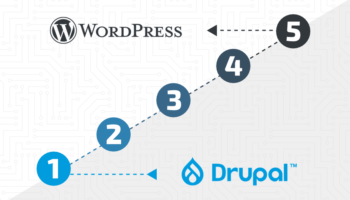When it comes to site speed, your hosting environment can make or break you. If your site is the engine that drives your business, your hosting is what assembles the engine. It is important to have a hosting environment that supports and complements your site.
In our case we build sites using WordPress which is commonly hosted on servers running a LAMP stack. LAMP stands for Linux, Apache, MySQL and PHP. These four piece of software are what take your site’s code, and delivers it as a webpage to your user’s browser. Making sure that your server’s software is working, up to date and optimized for your site is one of the many challenges of running a website. Most likely if you have a website you’re not personally managing a server. Instead you’re working with a hosting provider or partner. In this article I’ll brake down the two most common options out there for hosting solutions.
Unmanaged Hosting
The most common solution is working with a hosting provider. These include companies like GoDaddy, Rackspace and Network Solutions. They offer a range of different service levels. from prepackaged solutions where you are given basic access to a control or cPannel to offering raw server space where you can set up and manage your own server environment. These plans offer a lot of flexibility in finding the service and control level that fits your needs with the benefits of having your site hosted in a data-center.
Managed Hosting
A more pre-packaged solution, managed hosting offers you somewhat less control over the server itself, but makes up for this by offering tools and optimized software. Often managed hosting providers offer solutions for specific website builds. For example, there no shortage of options for WordPress managed hosting with providers such as WPEngine, Pagely and Kinsta. While they only work for hosting WordPress websites, they are optimized to run WordPress code fast and offer additional tools such as scheduled/manual backups, beta environments and merging environments.
Both of these solutions have benefits and draw backs and in general managed hosting solutions cost a little more, but you’re getting what you pay for. Here at Hall we use both managed and unmanaged hosting solutions. The truth is, as with most things, one size does not fit all. You need to weigh your needs and technical ability and go from there.




